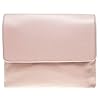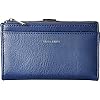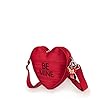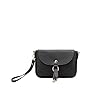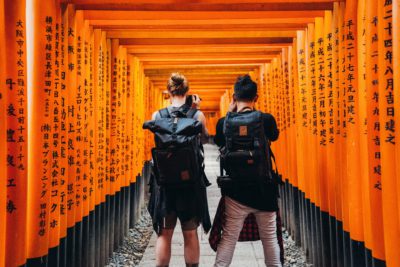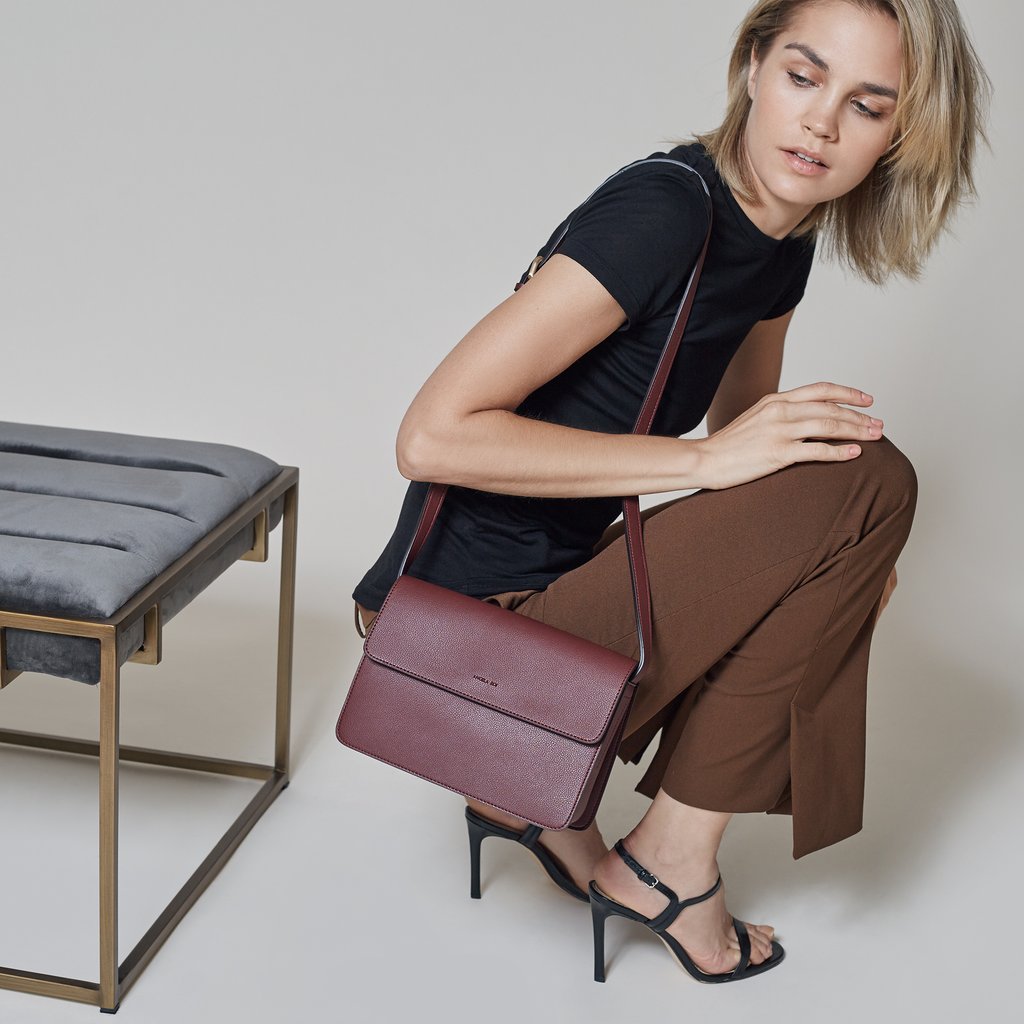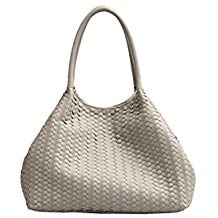Every time we hear of a new company, that works on a vegan leather alternative we get really excited as it means, that there’s one more option for our favorite designers to choose from, when creating all those beautiful vegan leather handbags we can’t seem to get enough of! Our newest discovery is a material called Malai, which is made in India by Zuzana Gombosova, a material researcher and designer from Slovakia, and Susmith Suseelan, a product designer and maker from India.
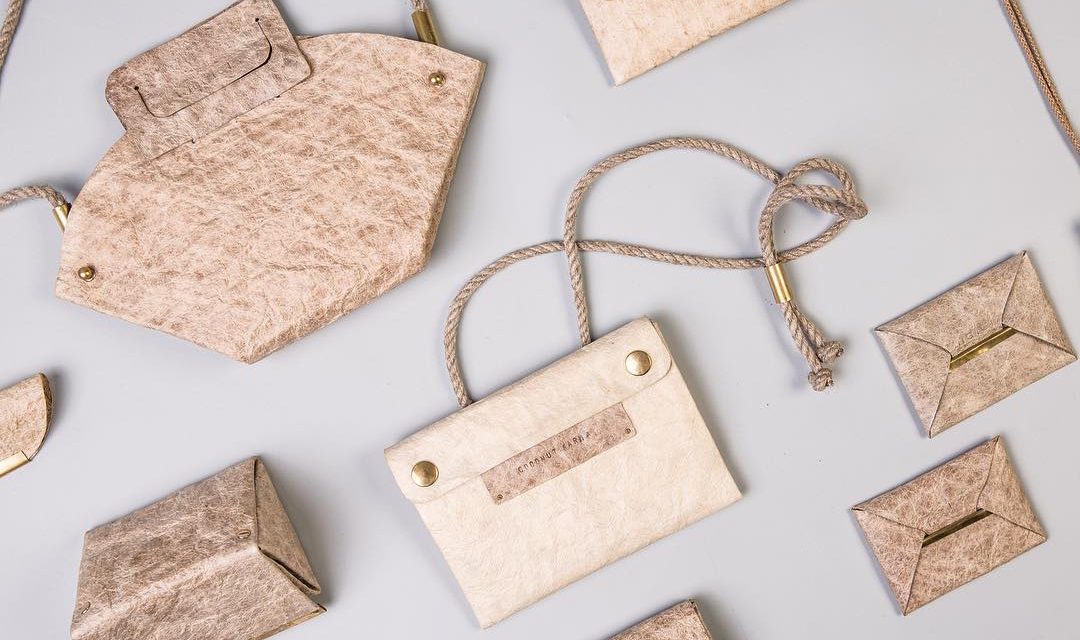
Image by @about.malai via Instagram
What is Malai?
Malai is a biocomposite material made from organic bacterial cellulose, that is grown on agricultural waste sourced from the coconut industry. The founding duo works with local farmers, collects their waste cocount water, which would otherwise go to waste in the drainage system, and re-purposes it to feed the bacteria’s cellulose production. 1000 gallons or 4000 liters of coconut water can be turned into 1000 ft2 or 320 m2 of Malai material. This is the approximate amount of coconut water waste a small coconut-processing unit produces in a day.
The feel of Malai is comparable to animal leather or paper. The material is flexible, durable, water resistant and 100% natural. It is a completely vegan product and the founders say you could even eat it, if you really wanted to!
How is Malai made?
After collecting the coconut water from local farmers, it is sterilised, which turns it into an entirely natural nutrient upon which the bacteria culture can feed. Basically you combine the nutrient with the bacteria and about 2 weeks later you later have a sheet of cellulose material. This process is called fermentation.
The cellulose jelly is then collected, enriched with natural fibers, gums and resins. This refinement process makes the material flexible and durable. The material can now be formed into any shape from sheets in different thicknesses to 3D objects. The material can also be dyed. The last step in the Malai production process is air-drying.
Malai can be used in fashion to create clothing and bags.Depending on the thickness of the material, which is customisable, Malai can be used in fashion to create clothes or bags. Malai can be embossed and screen printed.
How durable is Malai?
Much like paper or leather, Malai is sensitive to humidity. To keep your Malai-made product in good shape it is recommended to apply a thin layer of coconut oil to the surface to ensure it remains moisturized. Malai products can also be disposed of in the compost bin, once they have reached the end of their lifecycle.
Who is behind Malai?
Malai was founded by Zuzana Gombosova and Susmith Suseelan. Zuzana had been working with bacterial cellulose and was keen to explore the potential for a traditional bacterial cellulose growth process, that’s popular in the Philippines, in India.
We asked Zuzana Gonbosova to share some insights about how Malai came about and what the plans for the future are.
Zuzana, can you briefly summarize what Malai does and how you came up with the idea for the company? How long have you been working on this?
Me and my partner Susmith have been working on the material development since January 2017 however I started working with Bacterial Cellulose in 2013 during my MA studies in London. We both see tremendous potential in Bacterial Cellulose cultivation in South East Asian region and we feel there is a need to develop materials based on this raw material due to its outstanding environmental credentials.
And how did you meet your cofounder? Can you tell us a little more about yourself and your cofounder?
Me and my partner Susmith have been working on the material development since January 2017 however I started working with Bacterial Cellulose in 2013 during my MA studies in London. We both see tremendous potential in Bacterial Cellulose cultivation in South East Asian region and we feel there is a need to develop materials based on this raw material due to its outstanding environmental credentials.
What are the advantages of Malai compared to other vegan alternatives, both synthetic and plant-derived?
Malai has very good environmental credentials compared to leather or its synthetic alternatives. It is biodegradable and non irritant, it can be sewn, cut, glued or even moulded directly into 3D shapes which eliminates the necessity of previously mentioned processes. We did not develop Malai as a vegan leather but it happen to fell in that category of materials. Compared to other plant based materials it is wholly organic and has a unique character and aesthetic of its own. I haven’t had a chance to see and touch all currently available vegan leathers on the market therefore I cannot give you a holistic comparison.
Is it already possible to purchase Malai-made products and where can they be bought?
We offer material for sampling and testing which you can by either trough our website or by email. The products from Malai will be available soon we hope but that also depends on the willingness of the manufacturers and makers to adopt this material for their products. We are preparing a small collection of accessories made from Malai material that will be available from November onwards. At the moment we are presenting our products and materials at the London Design Fair.
Are you working with any other brands or designers? Do you plan to do so? Or will you do designer in-house?
Yes, we are. We work with chair manufacturer, accessories brands, belt designer and a footwear manufacturing company. We hope to present the outcomes of our collaboration during the Prague Design Festival that will take place from 25th till 29th of October in Czech Republic.
How has reception for Malai been so far? What are the biggest challenges for you at the moment? And what do you see as the biggest opportunities?
We have been well received by the press and the public so far. Overall the material is often subject to aesthetic taste. Malai feels and look quite organic which is either liked or disliked by designers. We are still fine tuning some of Malai’s properties like strength, durability and finish therefore it is important for us to get good feedback from manufacturers and makers who have already tried it. At the moment the biggest challenge is to get the next round of funding that would allow us to scale up our production and establish well developed supply chain. I think the field we are targeting is underdeveloped and there is more demand for materials of this category than the market offers at the moment. I see this as a big opportunity for us and I sincerely believe we will have a chance to take it.
Thank you for the interview!

The Malai team shares regular updates on their progress on Instagram. Samples of the material can be ordered on the company’s website and it you’re in the mood for some coconut water right now, we got you covered as well! 😉






